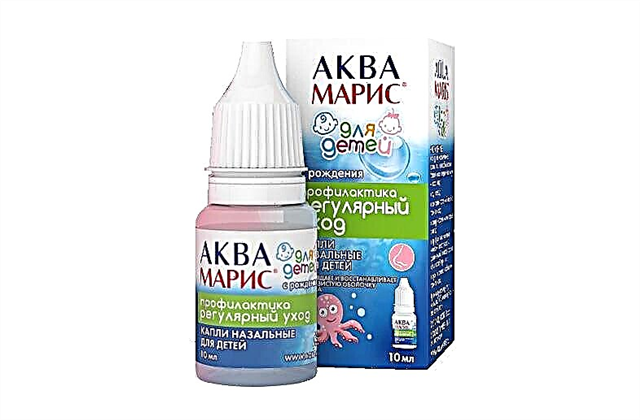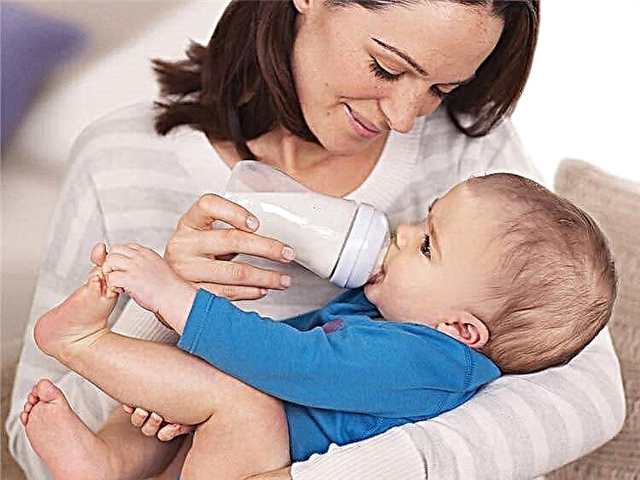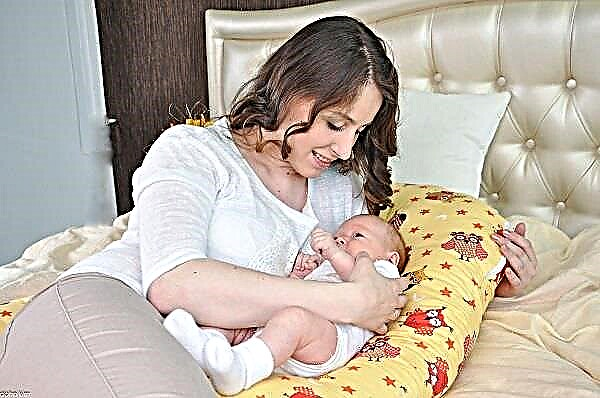Is it possible for a nursing mother to pamper herself with a glass of champagne on New Year's Eve? Will it harm the health and development of the baby? Is the momentary pleasure worth the possible negative consequences? These and similar questions worry many mothers. In this article, you will find information to help you make the right choice.
The vast majority of people believe that alcoholic beverages are prohibited for women who are breastfeeding. There is also such an opinion: drinks with a low alcohol content are harmless. So can a nursing mother be allowed a glass of champagne? This question is relevant, because the New Year holidays are coming soon. Let's try to figure it out.

How alcohol is absorbed by the female body
American children's doctor Jack Newman studied the problem. The results obtained prove that during lactation a small amount of alcohol is permissible if a woman uses them correctly. The pediatrician claims that there will be no devastating consequences for the health of the baby. Let's take a look at what happens to alcohol when it enters the mother's body.
- Approximately 20 minutes ethanol is processed by gastric juice, up to 15 minutes - absorbed by the intestinal mucosa.
- If alcohol was drunk on an empty stomach, then the presence of alcohol in the blood is determined after 30 - 60 minutes, if during a meal, then after an hour and a half. Champagne is a sparkling wine, therefore it penetrates not only into the blood, but also into mother's milk within 10 minutes. In milk, the amount of alcohol is up to 10% of the dose that has entered the body.
- If a little alcohol is drunk, then after 2 - 3 hours it is excreted from the body. The speed of elimination also depends on the woman's weight, the characteristics of metabolism, on the amount and calorie content of food.
The amount of alcohol in human milk decreases in proportion to the decrease in ethanol in the blood and does not depend on whether a woman is expressing or not. Jack Newman argues that drinking alcohol while breastfeeding will not cause negative consequences for the baby if the mother does not breastfeed him until the ethanol is completely eliminated from the body.
A well-known pediatrician, Dr. Komarovsky, does not speak out categorically against the minimum consumption of alcohol during hepatitis B, but considers a large number to be dangerous for the baby and an unjustified risk. But Komarovsky does not recommend experimenting with alcohol for women who are breastfeeding babies. On New Year's Eve, he advises to give preference not to champagne, but to soft drinks.
You should also be aware that the use of champagne by nursing mothers can provoke a decrease in the production of the hormone oxytocin and a decrease in lactation. And large doses of alcoholic beverages cause dehydration, which can lead to the cessation of milk production.
How alcohol affects baby's health
Ethanol is especially dangerous for babies under 6 months of age. At this time, the baby's liver is not able to cope with even the minimum dose of alcoholic beverages, and the duration of ethanol excretion increases 3 times compared to an adult. How does the child's body react if it encounters ethanol?
- Alcohol has an extremely negative effect on the heart and blood vessels, which is expressed in a change in the heart rate, and, as a result, in a violation of the respiratory function.
- The crumbs develop anxiety or vice versa - apathy.
- The work of the nervous system is disrupted. After feeding, the baby quickly falls asleep, feeling mild euphoria. However, sleep is restless, short, superficial. As a result, the baby does not fully rest, the strength is not restored, and the general state of health worsens.
- Alcohol provokes a delay in the mental development of the child, and significant doses of alcohol or the constant use of alcohol by the mother increases the risk of deviations significantly.
- Ethanol also negatively affects the digestive system, provoking inflammation of the mucous membrane of the stomach and esophagus, bloating and colic.
- Addiction to alcohol may develop, and the systematic use of alcohol by the nursing mother leads to the child's dependence. He cries constantly if he doesn't get ethanol with milk. Children whose mothers drank alcohol while breastfeeding were more likely to develop alcohol dependence in the future.
Alcohol intake negatively affects lactation. The woman's breasts become more swollen, it seems that milk production is improving, but the baby does not eat enough, as the milk becomes watery, its nutritional and taste qualities deteriorate. If a woman regularly drinks alcohol, then often milk production stops.
A glass of champagne on New Year's Eve for nursing

Doctors strongly oppose women drinking alcohol while breastfeeding. If a mother is breastfeeding a child up to one and a half to two years, then it is not easy for her to deny herself a New Year's glass of sparkling wine. In such a situation, it is necessary to take into account the age of the baby, his state of health and the frequency of feedings. How much champagne can a nagging mommy have? - It is permissible to drink no more than one glass, but it is still better to replace it with a good quality soft drink, which does not contain preservatives or dyes.
Mothers need to remember that the younger the baby is, the more harm is done to his health by alcoholic beverages consumed by a woman. Until the age of six months, any dose of alcohol is dangerous, after six months ethanol does not become safe for the crumbs, but only causes it a little less harm.
If you really want some alcohol, it is better to take a sip of dry wine, preferably white. But after it, you also need to refrain from feeding for several hours.
Champagne changes the taste of breast milk. If a woman begins to feed without waiting enough time, then the baby may refuse to breast. The changed taste causes misunderstanding in the crumbs, and he does not take the breast. That is why it is better to refrain from taking any alcoholic beverages during the breastfeeding period.
Terms of use
If a mother gives an account of what harm a glass of champagne she drinks can bring to the baby, but still decided to drink, it is necessary to strictly adhere to some tips.
- Feed the baby before the festive feast.
- Strain the milk for the next feeding. It can be stored in the refrigerator for 24 hours, at room temperature - no more than 3 hours. It is recommended to heat milk in a water bath, this will preserve its beneficial properties.
- Drink exceptionally high quality champagne.
- You do not need to drink on an empty stomach, first it is recommended to eat, which will promote the entry of less ethanol into the blood and milk. At the same time, you can only eat those dishes that are allowed for women who are breastfeeding.
- Remember: drinking too much can provoke inappropriate behavior, which is dangerous for the child. In addition, if the mother in this state breastfeeds him, the baby will be severely poisoned. Often such intoxication is not compatible with life.
- After a glass of sparkling wine, you can breastfeed your baby only after 3 hours. If more alcohol was drunk or the woman's weight is small, then feeding is possible in 5-8 hours. It happens that during such a time period, the breasts become heavily poured. In this case, you need to express some milk, this will reduce pain and facilitate lactation. Expressed milk should not be given to a baby.
It is not recommended to replace breast milk with mixtures, since they contain 10 times less useful components. It happens that children who have tried artificial nutrition then refuse to breastfeed. The explanation is simple: it is much easier to “get” food from a bottle. It should be borne in mind that the moment that breaks in breastfeeding can lead to a decrease in milk production.
If you look at any forum where this topic is discussed, you can read both positive and negative opinions. However, a loving mother should think about the health of her baby. You can do without alcohol, because the possible consequences can adversely affect the development of the crumbs.
How much can you drink?
It depends on the strength of alcohol and the weight of the nursing mother. But based on the average values given by the American Pediatric Association, then we can talk about 0.5 grams of alcohol per kilogram of a woman's weight. In understandable numbers and types of alcohol: a 60-kilogram woman can afford to drink 60 grams of strong alcohol, or 230 grams of wine, or two glasses of beer for the whole evening. The maximum concentration of alcohol in the blood will reach 30-60 minutes after drinking.
Poll: Do you think a glass of champagne will hurt a nursing mom in the New Year?
Opinions from forums
Natalia: In defense of alcohol - without it, of course, no one will die. But pregnancy and feeding imply an almost complete rejection of pleasures, and if at least sometimes you don’t allow yourself a little something, you can earn a good neurosis, which will also affect the child (or even latent aggression towards him as the cause of all misfortunes). For myself, I decide the issue in favor of champagne (but I have an older child, and eats complementary foods, that is, there will be 5-6 hours between alcohol and feeding).
Victoria Bystrova, 1 child: Some old, venerable pediatrician told me: "Eat, whatever you want, you still get milk, and not something else." And her husband's grandmother from the Novgorod region adheres to the same opinion, and she raised 7 healthy children. And you know, when she began to eat whatever she wanted, the child (on HB) immediately lost her allergy. I don’t think that a child will get much from one glass. On the 1st New Year, I was 5 months old, I drank champagne and nothing ... If you really want to, why not have a drink. If you are afraid that your conscience will torment you, then it is better not, it will be more expensive for yourself. I may be wrong, but in such quantities, it is more a psychological issue than a health issue.
Svetlana: I’ll tell you a VERY seditious thought: I would drink a couple of glasses of champagne without bothering at all. And without even expressing anything. It will not affect anything one-time. I had a situation when I was feeding: suddenly the milk ran out, in general it was chopped off. Empty, that's all. A very good (and very paid) pediatrician watched us. He categorically forbade me to feed the child with a mixture, but ordered: let the hungry hang on her chest, dissolve, they say, nothing terrible will happen to her in a day. And he prescribed a diet for me: a lot of boiled meat and beer (!). Well, I drank a bottle then :). Looking back, of course, with surprise. The next day after such a diet, there was a lot of milk (there were even problems - that the breast hardened from it, but, mmm, it was kneaded). The child slept exceptionally well - well, of course, before that she cried a lot, hungry, but now she ate, and even as if with beer 🙂 There were no negative consequences. Now she is 14, there is no craving for alcohol))). And it's funny to remember this, a hundred years have passed. So I wouldn’t be wise at all in your place, the author. You are not going to consume regularly.
MomAnya: Oh, comrades ... ... of course, no one urges mom to drink. But in my opinion, it is better to take and drink than to walk and worry that this cannot be done. And while saying, they say I feed, all that. It is clear that you can be patient, but if you really want to - I'm for. It is much worse if the mother begins to perceive GW as a heavy duty due to which she has to refuse for some reason.
Dasha Lutova: There will be nothing from the glass) and you do not need to decant ... Alcohol leaves the milk as well as from the blood, that is, feed the baby before dinner and then 2 hours after the champagne)



